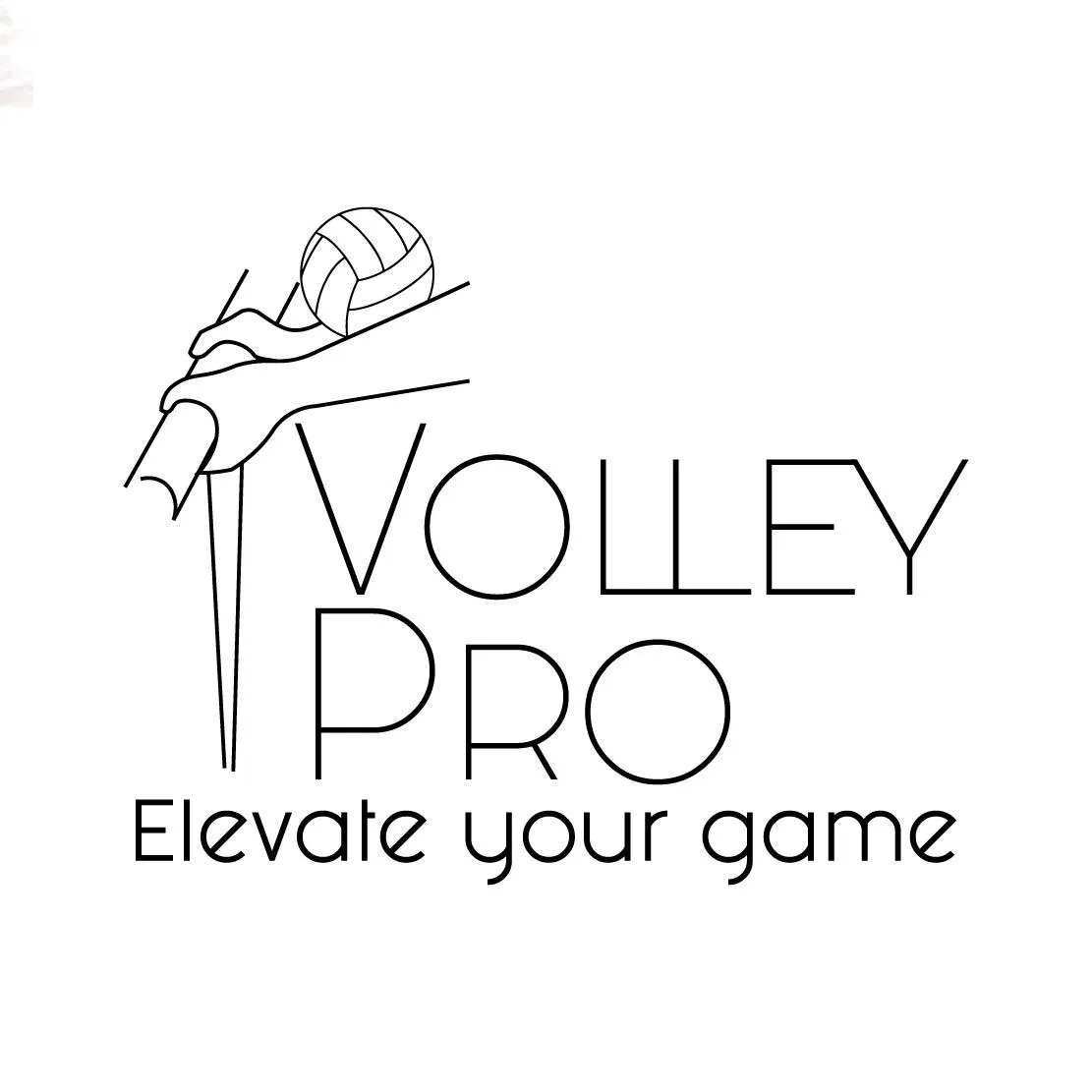
Read Our Blogs

Mental Toughness in Volleyball: Developing a Winning Mindset
Volleyball is not just a physical game; it's a mental game as well. While physical skills and athleticism are essential, mental toughness is the key to unlocking your full potential and achieving success on the court. Mental toughness, the ability to stay focused, confident, and resilient in the face of challenges, is crucial for navigating the ups and downs of volleyball, whether you're facing a tough opponent, dealing with a setback, or simply trying to maintain your composure under pressure.
The Mental Game of Volleyball:
Volleyball is a fast-paced and dynamic sport that demands not only physical prowess but also mental agility and resilience. The mental game of volleyball involves:
Focus and Concentration: Maintaining focus and concentration throughout a long and demanding match is crucial for reacting quickly to the ball, making strategic decisions, and executing skills effectively. Distractions, such as crowd noise, opponent's taunts, or negative self-talk, can disrupt focus and hinder performance.
Confidence: Belief in your abilities and your team's potential is essential for performing at your best. Confidence allows you to take risks, trust your instincts, and play with a sense of determination and purpose. Lack of confidence can lead to hesitation, self-doubt, and decreased performance.
Resilience: Volleyball is a game of momentum swings and unexpected challenges. Resilience, the ability to bounce back from setbacks and mistakes, is crucial for maintaining composure and staying focused on the game. Resilient players are able to learn from their mistakes, adapt to changing situations, and maintain a positive attitude even when facing adversity.
Motivation: Motivation, the drive and determination to achieve your goals, is essential for pushing yourself to train hard, improve your skills, and compete at your best. Motivated players are more likely to persevere through challenges, maintain a positive attitude, and strive for excellence.
Emotional Control: Volleyball can be an emotional rollercoaster, with moments of excitement, frustration, and pressure. The ability to manage your emotions and stay calm under pressure is crucial for making rational decisions, maintaining focus, and avoiding impulsive reactions that can negatively impact your performance.
Teamwork: Volleyball is a team sport, and mental toughness also involves supporting your teammates, communicating effectively, and working together to achieve common goals. A mentally tough team is one that can stay united and focused, even when facing challenges or setbacks.
Components of Mental Toughness:
Focus: The ability to concentrate on the task at hand and block out distractions. This involves maintaining your attention on the game, your role, and your next move, even when there are distractions or stressors present.
Confidence: Belief in your abilities and your team's potential. Confidence comes from preparation, practice, and past successes. It allows you to trust your skills, make decisive moves, and perform at your best.
Resilience: The ability to bounce back from setbacks and challenges. Resilience involves viewing mistakes as learning opportunities, adapting to changing situations, and maintaining a positive attitude even when things aren't going your way.
Motivation: The drive and determination to achieve your goals. Motivation can come from intrinsic factors, such as a love for the sport or a desire to improve, or extrinsic factors, such as recognition or rewards. Maintaining motivation is essential for consistent training and performance.
Emotional Control: The ability to manage your emotions and stay calm under pressure. This involves recognizing and accepting your emotions without letting them control your behavior. Emotional control allows you to stay focused, make rational decisions, and avoid impulsive reactions that can negatively impact your performance.
Developing Mental Toughness:
Mental toughness is not an innate trait; it's a skill that can be cultivated and strengthened through practice and conscious effort. Here are some strategies to help you develop mental toughness in volleyball:
Goal Setting: Set clear, specific, and achievable goals for yourself and your team. Having goals provides direction, motivation, and a sense of purpose. Break down larger goals into smaller, more manageable steps to track your progress and celebrate your successes along the way.
Visualization: Visualize yourself succeeding in challenging situations, such as making a crucial dig, serving an ace, or blocking a powerful spike. Visualization can help to build confidence, reduce anxiety, and improve performance by creating a mental rehearsal of successful outcomes.
Positive Self-Talk: Use positive self-talk to build your confidence and stay motivated. Replace negative thoughts and self-doubt with positive affirmations and encouraging statements. Focus on your strengths, past successes, and your ability to learn and grow.
Mindfulness: Practice mindfulness to stay present and focused in the moment. Mindfulness involves paying attention to your breath, your body sensations, and your surroundings without judgment. This can help you to stay grounded, reduce distractions, and maintain focus during training and competition.
Stress Management: Develop healthy coping mechanisms for managing stress and anxiety, such as deep breathing exercises, meditation, yoga, or spending time in nature. Stress can negatively impact your performance, so it's important to have effective strategies for managing it.
Teamwork: Support your teammates, communicate effectively, and work together to achieve common goals. A strong team dynamic can foster a sense of belonging, support, and motivation, which can enhance individual and team performance.
Learn from Mistakes: View mistakes as learning opportunities and use them to improve your performance. Don't dwell on mistakes or allow them to define you. Instead, analyze what went wrong, identify what you can learn from the experience, and use that knowledge to improve your skills and strategies.
Seek Feedback: Ask for feedback from your coach or teammates to identify areas for improvement and gain new perspectives on your performance. Constructive feedback can help you to identify your strengths and weaknesses and develop strategies for growth.
Embrace Challenges: Don't shy away from challenges; embrace them as opportunities to test your skills and build your mental toughness. Stepping outside your comfort zone and facing challenges head-on can help you to develop resilience and confidence.
Stay Positive: Maintain a positive attitude, even when facing setbacks or challenges. Focus on your strengths, your progress, and your ability to overcome obstacles. A positive attitude can be contagious and can inspire your teammates as well.
Volley Pro: Building Mental Toughness Through Training
Volley Pro can be a valuable tool for developing mental toughness in volleyball players. The platform's dynamic surface and challenging exercises can push you both physically and mentally, helping you to build resilience, increase your confidence, and develop a winning mindset.
Here's how Volley Pro can contribute to mental toughness:
Challenges Your Limits: Volley Pro's dynamic surface and challenging exercises push you beyond your comfort zone, forcing you to adapt, persevere, and overcome obstacles. This can help you to develop mental toughness and resilience.
Builds Confidence: As you master new skills and improve your performance on the Volley Pro platform, you'll gain confidence in your abilities. This increased confidence can translate to the volleyball court, helping you to play with greater assertiveness and determination.
Promotes Focus and Concentration: The interactive nature of Volley Pro requires focus and concentration, helping you to develop these essential mental skills. By staying present and engaged with the exercises, you can improve your ability to maintain focus during training and competition.
Encourages a Growth Mindset: Volley Pro encourages a growth mindset by providing opportunities for continuous improvement and learning. As you practice and refine your skills on the platform, you'll develop a mindset that embraces challenges and views mistakes as opportunities for growth.
By cultivating mental toughness and incorporating tools like Volley Pro into your training regimen, you can overcome challenges, stay focused under pressure, and achieve your full potential as a volleyball player. Remember, the mental game is just as important as the physical game in volleyball. By developing mental toughness, you can gain a competitive edge, enhance your performance, and enjoy a more rewarding and fulfilling volleyball experience.
Reserve your Volley Pro now and develop a winning mindset!

Reliable, professional pressure washing services for pristine results.
Copyright Volley Pro 2025. All rights reserved
